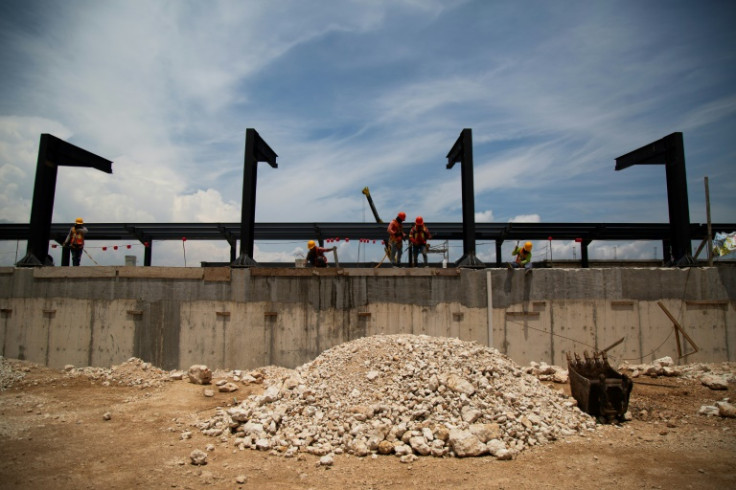
Environmental experts are warning about the Maya Train rail project in Mexico's Yucatan Peninsula as it can potentially harm distinct ecosystems, including the subterranean caves network.
One of the rail system sections that stretches over 1,500 kilometers in Mexico's southeast, connecting the resort town of Cancun, was inaugurated last year and is operational. The government announced that the pending route of Tren Maya will become operational in February.
However, the experts are not sure about the timeline and shared their worries regarding the construction of the project's pending route, as it will cut through some of the world's unique ecosystems, including thousands of subterranean caves carved by water.
Water expert Guillermo D'Christy surveyed the concrete and steel pilings that have been installed in the caves for the construction work and said that the government is putting bio-cultural heritage at risk.
"We are putting at risk a very important bio-cultural heritage for Mexico, and for humanity," D'Christy said, Reuters reported.
He explained that the vibrations of the construction machines and the operation of the trains daily will eventually damage the roofs of the caves, stressing that the "ceiling is going to gradually become thinner and thinner. It is falling. It is collapsing."
The government, on the other hand, noted that the environmental impact study was done before the execution and the risk of collapse was taken into account while engineering the tracks. The Mexican government ensured that there would be a prevention program.
The government is said to be taking several big steps, including the construction of the new rail project, before the president of the country steps down from his position later this year.
President Andrés Manuel López Obrador will leave office on Sept. 30. Last December, he took a pledge to get rid of all regulatory agencies that oversee the government, calling them "wasteful agencies."
He discontinued funds for the electoral watchdog organization to limit its power to change any electoral rules in the country. In the same month, he also appointed Lenia Batres as the Supreme Court judge following the lawmakers' rejection of candidates he recommended in November.
© 2025 Latin Times. All rights reserved. Do not reproduce without permission.







